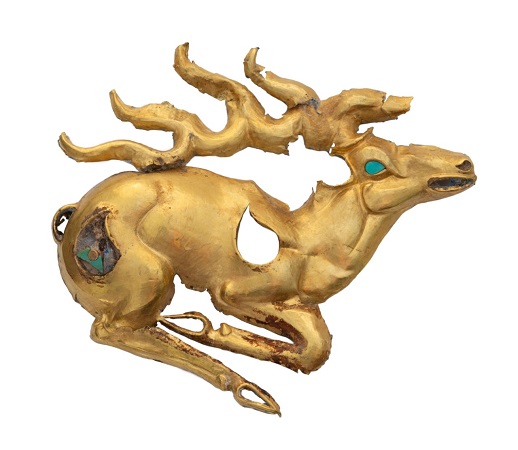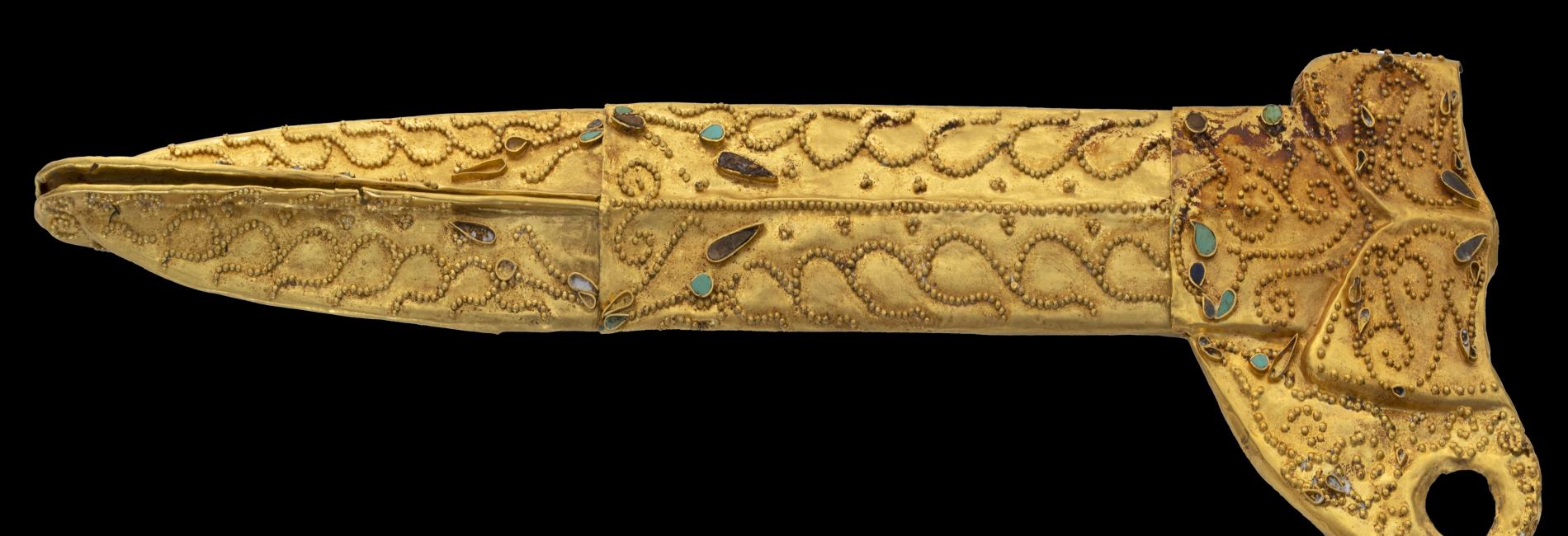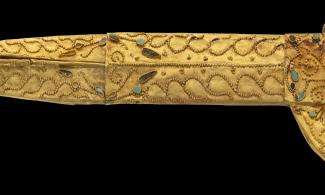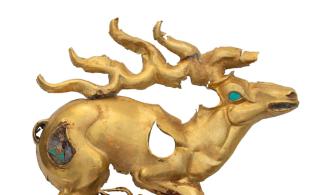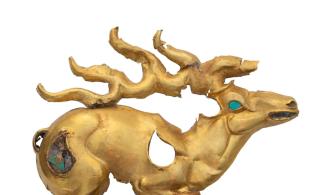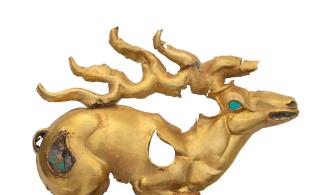Event information
Gold of The Great Steppe (28 September 2021 – 30 January 2022) will display an archaeological sensation, hundreds of outstanding gold artefacts recently discovered in the extraordinary ancient burial mounds built by the Saka people in East Kazakhstan.
The Saka culture of Central Asia flourished from at least the 8th-3rd centuries BCE, with earlier roots in East Kazakhstan. It was one of the earliest expressions of the Scythian culture that came to dominate the Eurasian steppe from the Black Sea to Siberia. Located in the Altai mountain system, the Saka of East Kazakhstan were a vibrant society who occupied a landscape of wide open skies, rolling plains and soaring mountains.
This exhibition will place archaeological finds discovered in the last three years by Kazakh archaeologists on a global stage for the first time, amplifying voices that often go unheard in museums in the west and giving UK audiences a unique opportunity to see and understand for the first time the rich cultural history of a country the size of western Europe.
Numerous spectacular artefacts were unearthed during the pandemic, and represent the resilience and determination of Kazakhstani archaeologists to protect and document their heritage, which is under threat from looting and degradation due to climate change.
2021 marks the 30th anniversary of the independent Republic of Kazakhstan, and this partnership between the East Kazakhstan Regional Museum of Local History and the University of Cambridge represents the growing application of archaeological science that is being driven by Kazakhstani researchers. The Fitzwilliam Museum will be working in partnership with research scientists at the McDonald Institute for Archaeological Research, University of Cambridge, to uncover new secrets held by these artefacts using the latest non-invasive technology. New results from the collaboration will be included in the exhibition and digitally as an ongoing research exhibition legacy.
More details about the exhibition: https://steppe-gold.fitzmuseum.cam.ac.uk/
